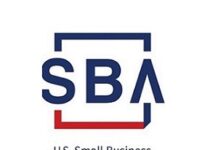Companies spooked by negative headlines about Asian manufacturing plants have a safer alternative closer to home, according to Rhode Island business consultant Ana Morgan.
She wants them to take a look at her native country, El Salvador.
“It can be a real image problem for a company when it is discovered their product is made by child labor,” said Morgan, president of Morgan & Associates, during a pitch last week to Ocean State businesspeople. “I’ve toured the factories in El Salvador, and I’ve never seen children there. Everything is very clean. I was amazed.
El Salvador is best known to many in this country as a place long ravaged by civil war. But the war ended back in 1991, and now leaders of the small Central American nation are working to ensure the peace lasts by expanding their economy.
Manufacturing plants, tourist resorts, call centers, “green” energy, and medical services are all part of the plan, according to Juan Zepeda, a representative of PROESA, El Salvador’s investment promotion agency. He joined Morgan during a presentation at the Providence law firm McIntyre, Tate & Lynch.
Foreign investment in El Salvador is growing, Zepeda told the group; last year the figure topped $4.7 billion. “We have a very stable environment for business development,” he said. “For the past 15 years, El Salvador has been preparing for economic development, creating laws that promote investment.”
Zepeda described how the Central American Free Trade Agreement (CAFTA) of 2004 has made El Salvador an ideal location for companies that wish to reach markets in Latin America and elsewhere. The pact – signed by the USA, the Dominican Republic, and the five countries of Central America – requires the Salvadoran government to adopt policies that foster free trade.
“We’ve signed with Latin American countries, Caribbean countries, Canada, and Taiwan,” Zepeda said. “We can reach 500 million people through these free trade agreements.”
CAFTA means El Salvador now competes with Asian countries for textile plants. Zepeda pointed out that the United State’s tariff on clothing made with synthetic fibers is 32 percent if the items are made in Korea, and zero if they are made in El Salvador. Such policies have prompted at least one Rhode Island business, Moore Company of Westerly, to build a plant in that country.
“We’re attracting the brands now – Benetton, Versace, Puma,” Zepeda said.
He added that CAFTA ensures workers get a fair shake. Factories in the country’s 15 free-zone industrial parks are required to pay employee benefits and participate in a social security program, and there are medical clinics in every free zone.
Foreign investors should also consider El Salvador’s transportation infrastructure, Zepeda said. He described it as “the best in Latin America.” He also pointed out the country’s main airport offers direct flights to major destinations all over Latin America, the Caribbean, and the USA.
While El Salvador has no Caribbean coastline, Zepeda noted there is access to ports in neighboring Honduras and Guatemala. The countries of Central America are now working together to build a so-called “dry canal” – a four-lane highway that will connect the two coasts. And a Japanese company is constructing a port facility in El Salvador as an alternative to the overcrowded ports on the West Coast of the U.S.
For those reasons, Zepeda said, many companies are moving their Latin American distribution centers to El Salvador.
Zepeda offered a host of other reasons why U.S. companies should consider doing business El Salvador, including:
• El Salvador’s government is offering tax holidays and other incentives to companies that locate facilities there.
• The currency used in El Salvador is the US dollar.
• The country has a young work force – 70 percent of the population is younger than 34 years old.
After listening to the presentation, Cranston business consultant Ed Greene said he may be recommending El Salvador to some clients who have considered using manufacturing facilities in China. He added that the widely-publicized contamination problems that have plagued Chinese plants over the past year could give an edge to countries like El Salvador.
“If quality control is an issue, being three hours away is a whole lot better than being days away,” he said.
Zepeda doesn’t see the current slowdown in the U.S. economy as an obstacle to his mission. “This is when people are more accepting,” he said. “They’re ready to listen because they’re looking for solutions.”
Morgan agreed. “This is the time when you should be looking for opportunities,” she said. •
No posts to display
Sign in
Welcome! Log into your account
Forgot your password? Get help
Privacy Policy
Password recovery
Recover your password
A password will be e-mailed to you.












